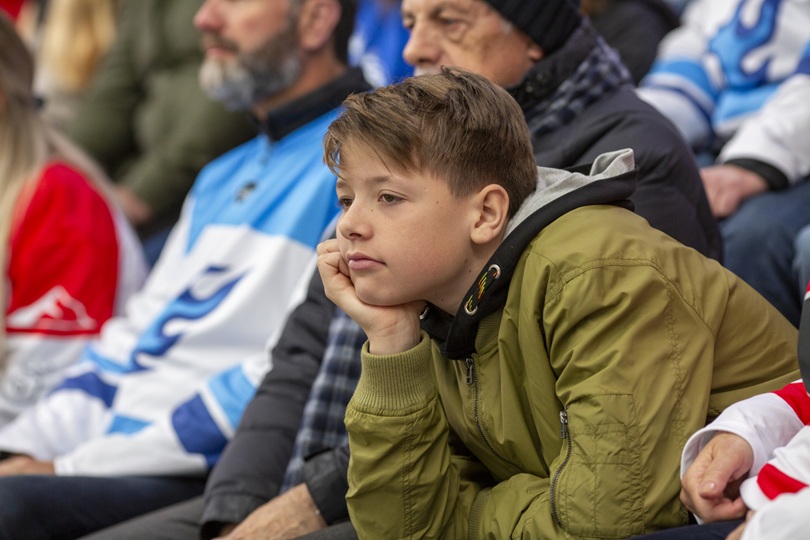They Lost?! Helping Kids Cope with Sports Disappointment

For many families, cheering on a favourite sports team is more than a pastime, it’s a ritual. Whether it’s hockey, football, or baseball, watching the game together builds connection, community, and family memories. But what happens when the final buzzer sounds and their team came up short? Can we help our kids cope with sports disappointment?
For young fans, especially those who invest their hearts (and wardrobes) into a team’s season, a loss can feel devastating. Tears are shed. Shirts are tossed. “It’s not fair!” is a recurring exclamation. As parents, it’s our job not to minimize those feelings. And we need to help them work through them.
Here’s how to support your child when their favourite team loses, and turn sports disappointment it into teachable moments…
Acknowledge Their Feelings
Before jumping in with logic (“It’s just a game!”), pause and validate their emotions. It might seem like an overreaction, but for kids, this is real grief.
Try:
“I know you were really hoping they’d win. It’s okay to feel upset.”
“You’ve been cheering for them all season. Of course this loss hurts.”
Validation doesn’t encourage wallowing. It lays the groundwork for emotional regulation.
Model Good Sportsmanship
Whether you’re watching the Stanley Cup Playoffs or a U9 soccer final, your reaction matters. Kids mirror our behaviour, even (especially?!) when we think they’re not watching.
We need to model good sportsmanship when dealing with sports disappointment. If you’re frustrated or muttering about bad calls, they’ll pick that up. Instead of yelling at the TV, try to model disappointment without blame.
Try:
“They gave it their all, and sometimes that’s just not enough to win.”
“I’m proud of how hard they played.”
Shift the Focus to Effort, Not Outcome
This is a great time to reinforce growth mindset thinking. Ask questions like:
- “What do you think they did really well this season?”
- “What would you do differently if you were the coach?”
- “What was your favourite moment from the season?”
This helps kids process the overall experience more fully, and reminds them that the journey matters as much as the score of their final game.
Make Room for Ritual
Having a post-game ritual—win or lose—can provide structure and emotional safety.
Some ideas:
- “Win or lose, we go for ice cream after a big game.”
- “Let’s do a quick gratitude huddle… name one thing you’re thankful for about this season.”
- “Let’s rewatch some favourite plays or highlight moments.”
Creating predictable rituals helps kids know that disappointment is temporary… and your connection lasts.
Put It in Perspective (Gently)
When the tears dry and the jerseys are back in the drawer, it’s okay to talk about bigger lessons.
Try:
“Part of loving something deeply is feeling sad when it doesn’t go your way. But that’s also what makes the wins so sweet.”
“Even the best teams lose sometimes. That’s why we keep watching and keep believing.”
Let Them Feel Passion—Even When It Hurts
In a world that encourages apathy and disconnection, it’s actually pretty amazing that your child cares this much about something. Passion is a powerful thing. The goal is not to dampen their enthusiasm. This helps to teach necessary resilience alongside it.
Let them love their team fiercely. Let them cry when things don’t go their way. Then help them dust off, cheer again, and maybe even take a shot on goal themselves.
Eventually, the team will win. And they’ll lose. And your child? They’ll be stronger for having stayed in the game.
Do your kids get emotional when their team loses? Do you?! What’s helped your family deal with post-game heartbreak? Share your tips in the comments!














